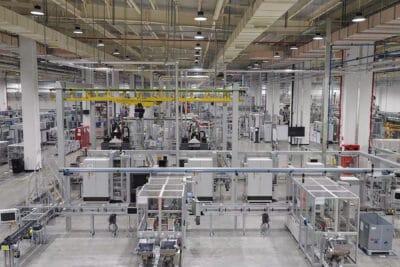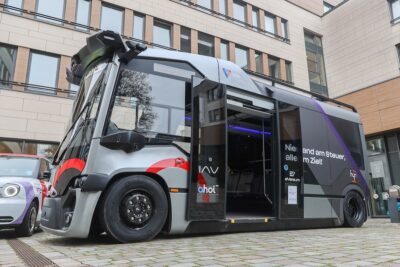Germany: Bosch investing €77M in e-mobility R&D centre
Bosch is planning on investing 77 million euros in its existing development centre in German Schwieberdingen. Most of the money will help build new offices for employees working on electric transport solutions. Bosch will spend the first 27 million this year.
The Stuttgarter Zeitung quotes the head of the facility, Thomas Pauer, saying the remaining 50 million euros will be invested next year. In Schwieberdingen they are developing high voltage batteries for electric vehicles among other solutions. They employ 6,500 people there to date and this number is likely to grow in line with the new investments. Bosch would not go into detail on this though.
Yet, they are currently looking to fill 600 positions but are having trouble finding skilled workers, says Pausch. They need software and electrical engineers in particular to move to the town near Stuttgart. Pausch also pointed to training that enables employees to switch from gas guzzlers to electric drive development for example. In addition, Bosch has set up a dual degree in partnership with Esslingen University.
For Bosch, the investment in Schwieberdingen underscores a global push for electric mobility. Their estimates suggest that 20 million hybrid and electric vehicles will be sold worldwide in 2025.
Yet, the company has been building on their German facilities. The latest investment sees Bosch having broken ground for a new chip factory in Dresden as planned. It will mainly produce processors to serve e-mobility from 2021 and is the largest investment in the company’s history worth 1 billion euros. For Bosch, the location puts them in close proximity to VW and BMW that are building electric cars in Saxony. The VW factory in Dresden for example will not only host the e-Golf production in future, but will also be producing electric cars from the I.D family.
Only when it comes to making battery cells for electric vehicles in Europe, Bosch declined. CEO Volkmar Denner had concluded previously that they would have to generate 200 GWh to make the investment worthwhile but at a cost of 20bn euros. While Denner said the money as such would not be “any problem” for Bosch, the supplier decided that it would not be worth the risk. A statement reads: “Given dynamic external market factors that can only be predicted with difficulty, it is unclear whether this investment would pay off for Bosch, and when.” In particular competition from Asia is making it difficult.
Therefore, Bosch will stick to battery cell design and especially systems as well as other electric mobility solutions.





0 Comments